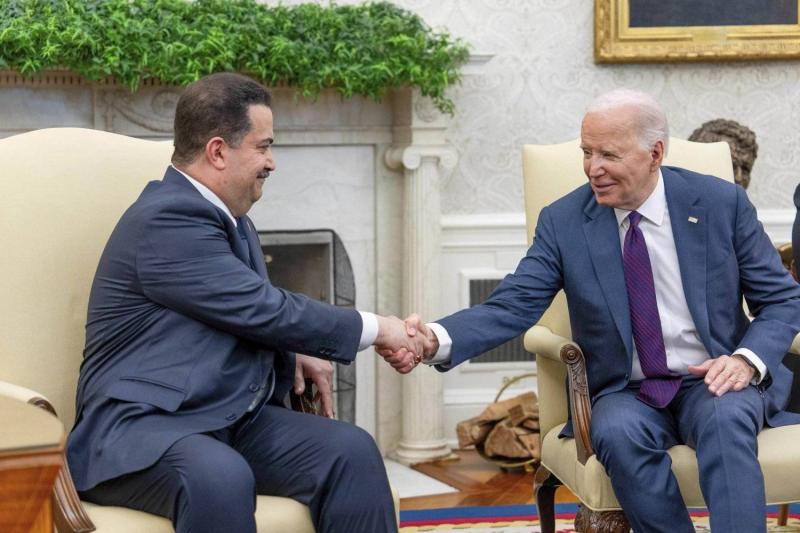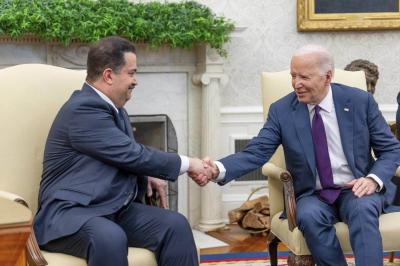The American newspaper "Politico" highlighted the apparent divergence in the positions of Iraqi Prime Minister Muhammad Shia al-Sudani during his visit to Washington, where he stated that ISIS does not pose a threat as it did ten years ago. This assessment, according to the report, is not shared by the Biden administration.
The U.S. report noted that Iraq believes that ISIS has ended, a claim Washington disagrees with. During al-Sudani's visit, a key message to Washington was that ISIS no longer represents the same threat as before. Al-Sudani reinforced this point multiple times during a press meeting last Tuesday when asked about the future of U.S.-Iraq relations. He claimed, "ISIS does not pose a threat to Iraq at present, as most of its elements are hiding in the mountains and caves in the desert, and our security forces continue to track them." He added that as a result, Baghdad is planning "to reassess the timeline for ending or reducing the mission" of the U.S.-led military coalition.
However, the U.S. report emphasized that the Biden administration disagrees with this viewpoint, referencing the stance of the U.S. State Department which claims that despite the defeat of ISIS on the ground in Iraq due to the efforts of the Iraqi army and the international coalition, the group still poses a real threat, albeit diminished in Iraq and the broader region.
The report suggested that these differing evaluations of the terrorist organization's strength reflect a split between Baghdad and Washington as both sides attempt to determine the future of U.S. troops in Iraq and the fate of the "extremely successful" international coalition. According to the report, the Biden administration has clear interests in maintaining the presence of U.S. troops in Iraq, as this helps prevent the resurgence of ISIS in the region and counter Iranian influence—a mission that has become increasingly important amid the emerging conflict between Israel and Tehran.
The report stated that al-Sudani's remarks represent a shift in his views regarding the presence of U.S. forces in Iraq, noting that three months ago, he secretly expressed a desire for U.S. troops to remain in the country, despite having previously announced plans to expel them.
It also mentioned that al-Sudani's statements indicate a significant shift in the Iraqi position towards ISIS, recalling that Foreign Minister Fuad Hussein recently stated that ISIS is re-emerging, saying, "they have reached Moscow, which means they can reach anywhere." Additionally, the report addressed concerns among both Republican and Democratic parties regarding the potential resurgence of ISIS in the future. Republican Congressman Don Bacon expressed that he was "happy that ISIS no longer represents the threat it once did to Iraq," but added, "there is still a network, and they can revive it very quickly if conditions are right."
The report cited Andrew Kooti, a former U.S. Navy official and one of the defense officials in the Trump administration, stating that ISIS is capable of adapting and evolving remarkably.




